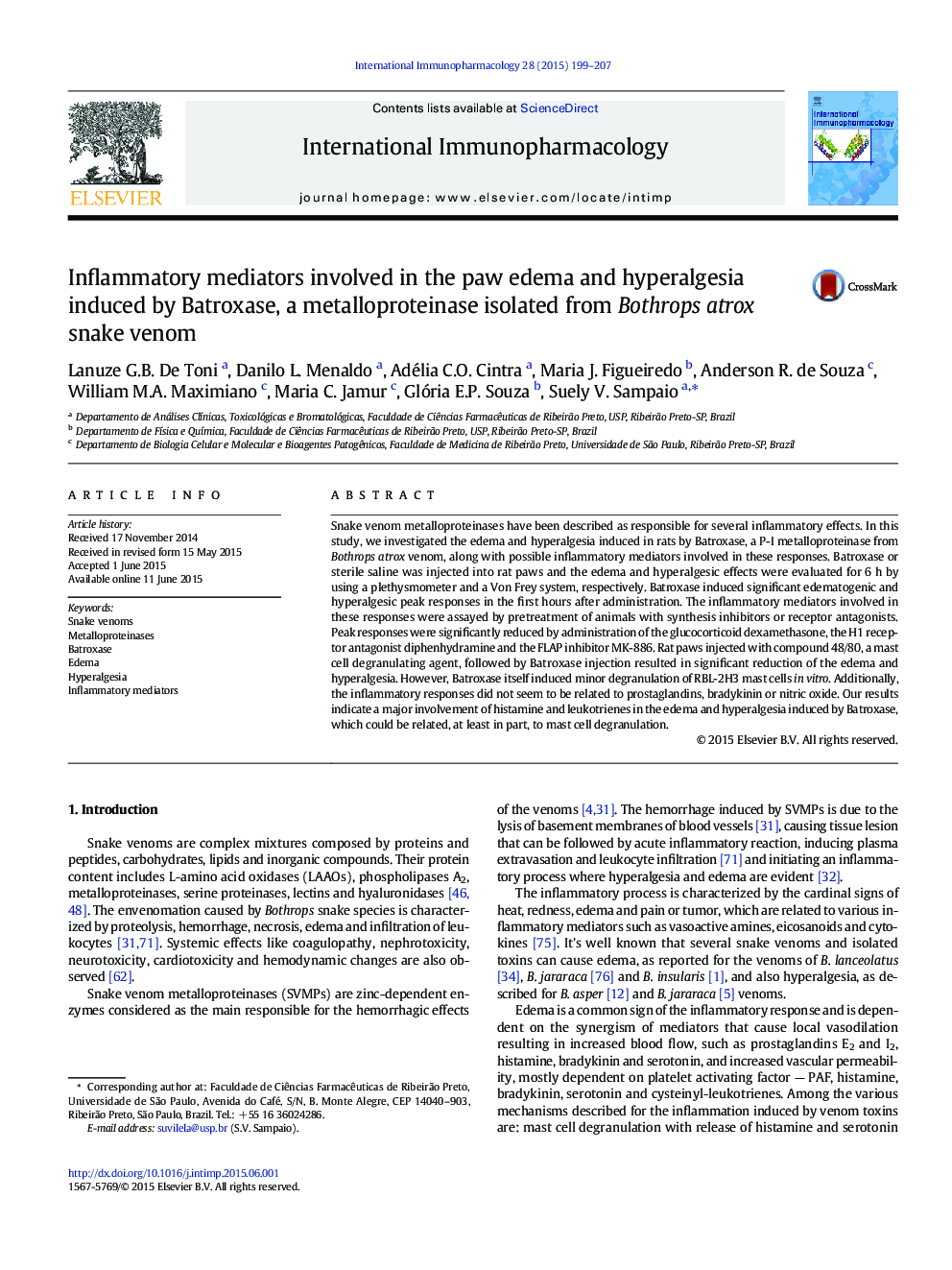| Article ID | Journal | Published Year | Pages | File Type |
|---|---|---|---|---|
| 2540445 | International Immunopharmacology | 2015 | 9 Pages |
•Inflammation induced by Batroxase, a metalloproteinase from B. atrox venom, was evaluated.•Batroxase induced edema and hyperalgesia in the first hours after injection in rat paws.•Mast cell degranulation seems to be involved in the inflammatory responses of Batroxase.•Results suggested involvement of mediators as leukotrienes, histamine and serotonin.•There was no apparent participation of prostaglandins, bradykinin or nitric oxide as mediators.
Snake venom metalloproteinases have been described as responsible for several inflammatory effects. In this study, we investigated the edema and hyperalgesia induced in rats by Batroxase, a P-I metalloproteinase from Bothrops atrox venom, along with possible inflammatory mediators involved in these responses. Batroxase or sterile saline was injected into rat paws and the edema and hyperalgesic effects were evaluated for 6 h by using a plethysmometer and a Von Frey system, respectively. Batroxase induced significant edematogenic and hyperalgesic peak responses in the first hours after administration. The inflammatory mediators involved in these responses were assayed by pretreatment of animals with synthesis inhibitors or receptor antagonists. Peak responses were significantly reduced by administration of the glucocorticoid dexamethasone, the H1 receptor antagonist diphenhydramine and the FLAP inhibitor MK-886. Rat paws injected with compound 48/80, a mast cell degranulating agent, followed by Batroxase injection resulted in significant reduction of the edema and hyperalgesia. However, Batroxase itself induced minor degranulation of RBL-2H3 mast cells in vitro. Additionally, the inflammatory responses did not seem to be related to prostaglandins, bradykinin or nitric oxide. Our results indicate a major involvement of histamine and leukotrienes in the edema and hyperalgesia induced by Batroxase, which could be related, at least in part, to mast cell degranulation.
